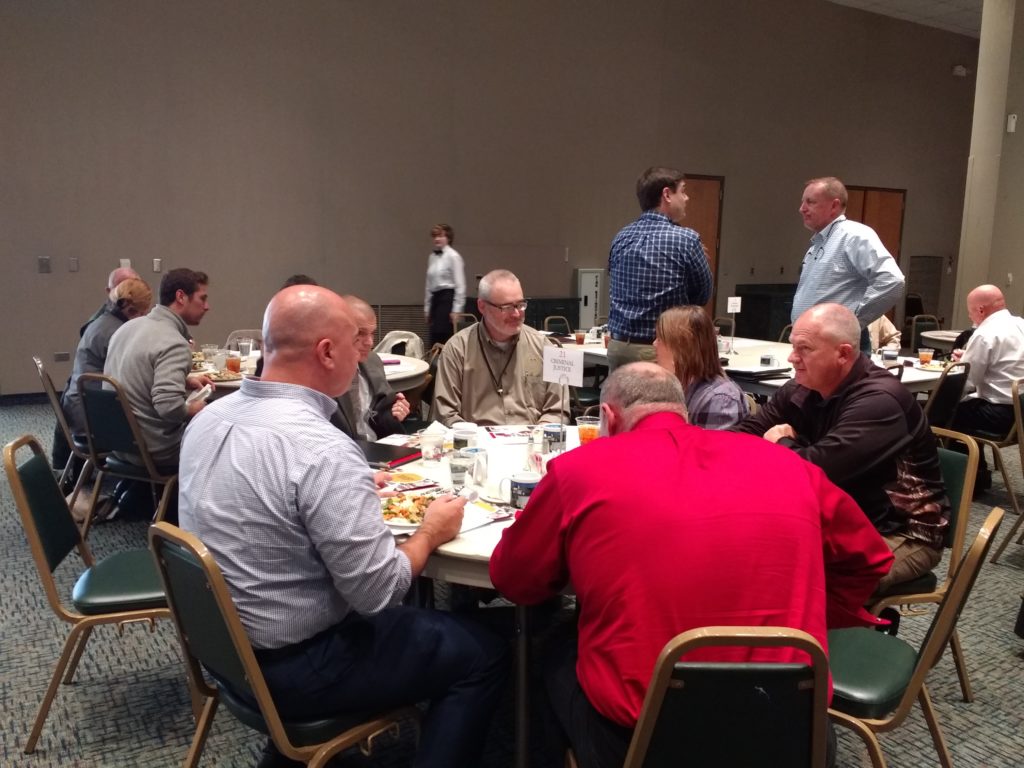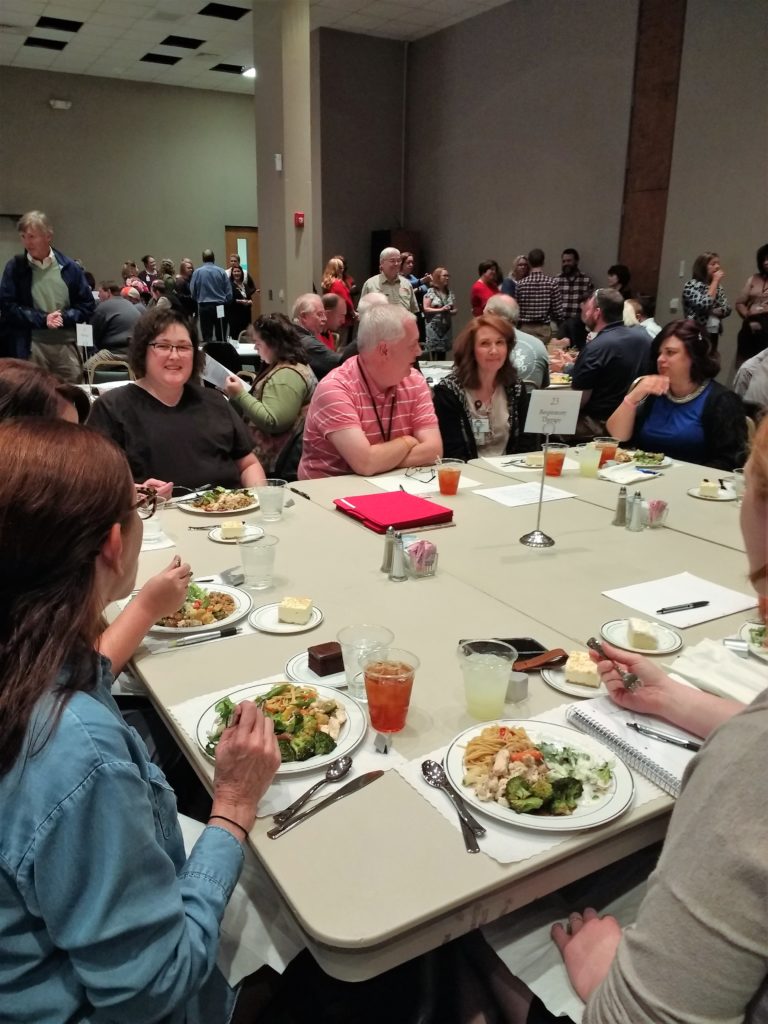Preparation, relevance and improvement were the themes weaving through conversations during Wilkes Community College’s Program Advisory Committees kickoff event on Wednesday, October 23, at the Walker Center on the Wilkes Campus. Advisory committee members and WCC faculty, staff and administrators took part in the discussions.
Program Advisory Committees are an essential link between the area’s business and industry community and the college. Whether preparing students for entry into the world of work, or for transfer to a four-year college or university, advisory committees provide input to ensure the relevance of the college’s curricula in a rapidly changing world. Additionally, the committees advise the institution regarding the improvement of programs in an effort to more adequately meet the needs of the community.
Committee members are local educators, business and industry representatives, and local citizens from the three-county service area who are familiar with and interested in the needs of the community. Their expertise in the areas they represent provide opportunities for suggestions, recommendations and assistance involving specific programs.
“One of the primary responsibilities of Wilkes Community College is to produce a highly skilled workforce that meets the needs of employers throughout our service area and beyond. We rely on our advisory committees to keep the college informed of changes in their varied businesses and industries in our region and the skill set potential employees need to fill any jobs,” said WCC President Dr. Jeff Cox. “We work diligently to ensure that the college curricula and programs are current and relevant in order to supply a knowledgeable and skilled workforce. Additionally, the college works to empower students with soft skills such as working collaboratively in a group setting, maintaining a strong work ethic and demonstrating effective communications skills.”
Approximately 130 advisory members represented the following areas: Applied Engineering Technology; Associate Degree Nursing; Architectural Technology; Automotive Systems; Business Technologies; College Readiness; Computer Technologies; Collision Repair & Refinishing; Criminal Justice; Culinary Arts/Baking & Pastry Arts; Diesel and Heavy Equipment; Disability Services; Dental Assisting; Early Childhood Education; Emergency Medical Science; Human Services; Learning Resources; Radiography; Respiratory Therapy; and SAGE (Supporting Academic Goals for Education).
The Respiratory Therapy Advisory Committee had representatives from Forsyth Medical Center, Wake Forest Baptist Medical Center, Wake Forest Baptist Health – Wilkes Medical Center, and Valley Nursing and Rehabilitation Center in attendance. Members were provided with an update on student and program progress. They discussed possible changes in the curriculum and the admissions criteria. In addition, the committee looked at the program overall and any areas that may need improvement to assure that we are providing highly trained therapists.“By providing an essential link between the college and members of the community, the advisory board assures continued improvement of the various programs, so the college is meeting the needs of the service community,” stated Billy Woods, dean of Health Sciences.
The Criminal Justice Advisory Committee’s discussion involved an update on the pending 2+2 agreement with Appalachian State University and a proposed plan for an online track for working professionals in the field. The committee members advised that they would share the information with those in their agency. The members then completed a questionnaire designed to elicit responses regarding areas that may need improvement. Verbal and written communication skills were identified as an area that needs improvement. It was noted that they are having these issues regardless of whether they are our graduates or not. It was also stated that our graduates are knowledgeable and well prepared. One member stated that even though much of society is moving away from face to face conversation in the criminal justice field it will always be a necessity. Joe Exposito, chair Public Service Technologies, thanked everyone for taking time out of their busy schedules to attend the meeting in an effort for Wilkes Community College to improve our program.
“We are very grateful to all Program Advisory Committee members for sharing their time and expertise with the college. The input from our business and industry representatives is truly invaluable to the college, as it ensures we are keeping abreast of their changing employment needs,” added Dr. Cox.

Criminal Justice Advisory Committee

Respiratory Therapy Advisory Committee
